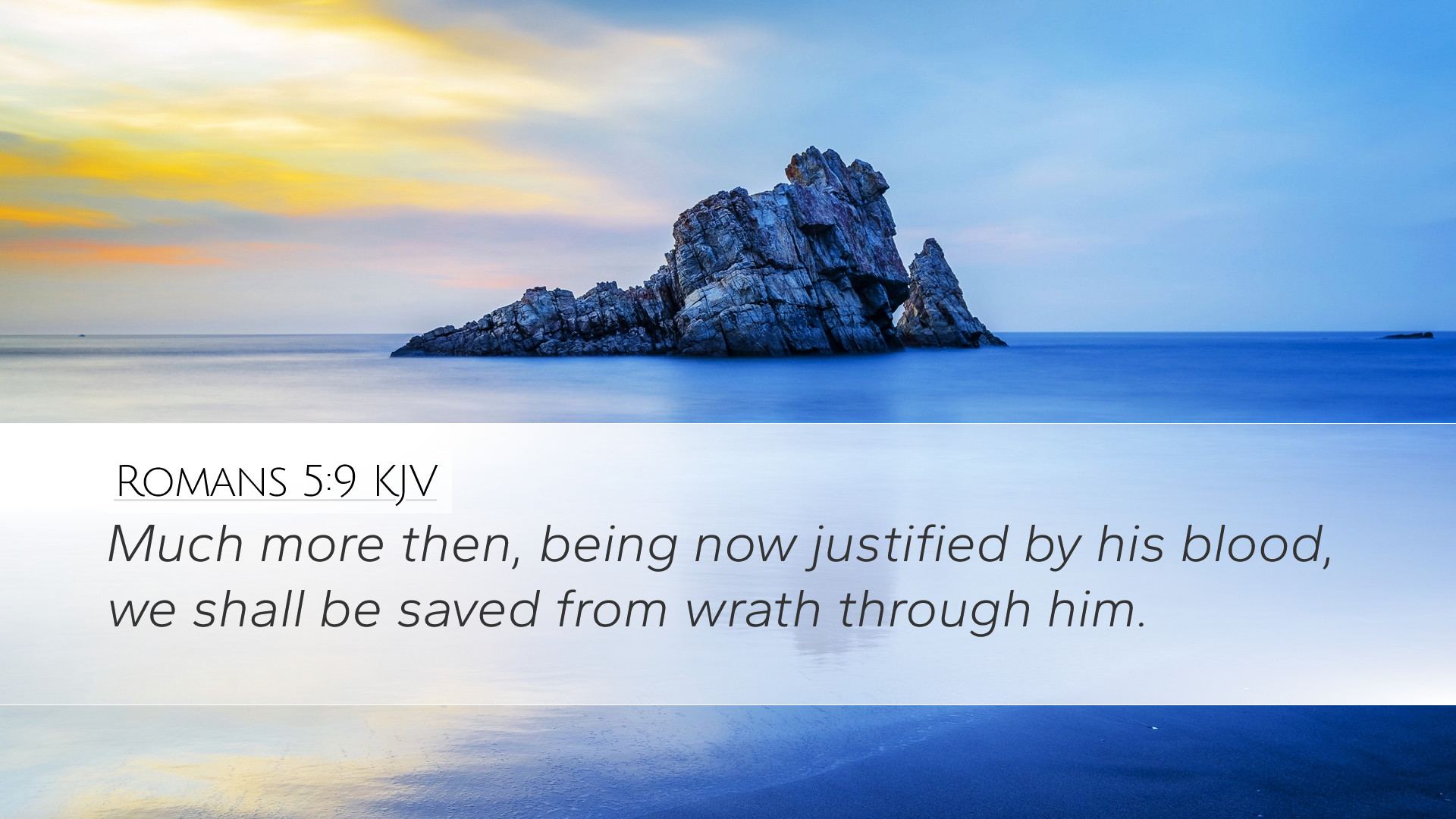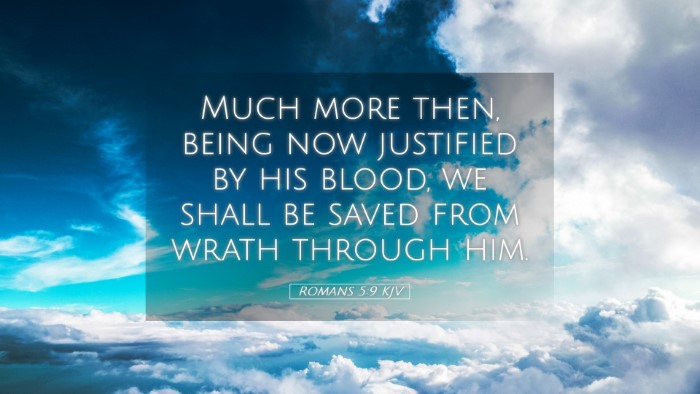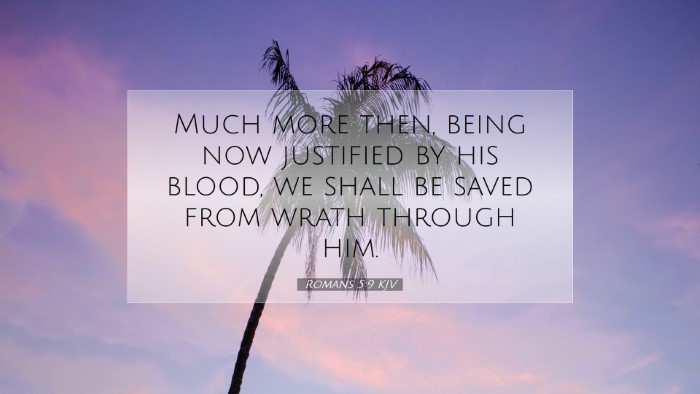Old Testament
Genesis Exodus Leviticus Numbers Deuteronomy Joshua Judges Ruth 1 Samuel 2 Samuel 1 Kings 2 Kings 1 Chronicles 2 Chronicles Ezra Nehemiah Esther Job Psalms Proverbs Ecclesiastes Song of Solomon Isaiah Jeremiah Lamentations Ezekiel Daniel Hosea Joel Amos Obadiah Jonah Micah Nahum Habakkuk Zephaniah Haggai Zechariah MalachiRomans 5:9
Romans 5:9 KJV
Much more then, being now justified by his blood, we shall be saved from wrath through him.
Romans 5:9 Bible Commentary
Commentary on Romans 5:9
Bible Verse: "Much more then, being now justified by his blood, we shall be saved from wrath through him."
Introduction
Romans 5:9 stands as a pivotal declaration within the Epistle to the Romans, encapsulating the profound implications of justification by faith and the redemptive work of Christ. This commentary synthesizes insights from renowned public domain scholars such as Matthew Henry, Albert Barnes, and Adam Clarke, providing a detailed exploration of the themes, implications, and theological significance within this verse.
Historical Context
The Apostle Paul, writing to the Romans, addressed both Jewish and Gentile believers amidst an environment of social and religious tension. The overarching theme of this epistle is the righteousness of God revealed through the gospel, emphasizing that salvation is attainable through faith alone. In Romans 5, Paul illustrates the benefits of this justification, particularly emphasizing the believer's position in Christ.
Verse Analysis
Paul starts by affirming the security of believers who have been justified. The phrase "being now justified by his blood" suggests a present reality; justification is not merely a future hope but a current state for those who are in Christ.
Matthew Henry notes that justification is a legal term, indicating that God declares a sinner to be righteous on the basis of faith in Jesus Christ's atoning sacrifice. This justification results in peace with God, and subsequently, believers are no longer subject to wrath but are reconciled to Him.
Albert Barnes elaborates, observing that the justification by Christ’s blood points to the sacrificial death of Christ as the means through which believers are redeemed. Barnes emphasizes that this act of grace secures a believer’s standing before God, highlighting the significance of Christ’s blood as the propitiation for sin.
Salvation from Wrath
Paul contrasts the believer’s new state with the impending wrath reserved for the unrepentant. The assurance given in "we shall be saved from wrath through him" indicates that salvation is not merely from sin’s penalty but from the future wrath of God against sin.
Adam Clarke expounds upon this aspect by emphasizing that while all humanity is justly condemned, those justified in Christ are delivered from that condemnation. Clarke notes that this future salvation encompasses both the present deliverance from sin's power and the ultimate rescue from eternal condemnation.
Theological Implications
This verse is a robust reminder of the transformative power of the gospel. The concept of being justified by Christ's blood signifies not only legal standing but relational intimacy with God. Justification by faith leads to assurance in one's salvation, freeing the believer from the fear of divine judgment.
Repeatedly, scripture emphasizes that this justification is a gift (Romans 3:24) and not a reward for human effort. The unconditional nature of this salvation highlights God's gracious character, allowing believers to rest secure in His promises.
- Joy in Justification: Believers should rejoice in their status as justified, which brings peace with God (Romans 5:1).
- Hope for the Future: This passage encourages believers to live in confidence and expectation, knowing they will be saved from the wrath to come.
- Call to Holiness: Understanding the gravity of God’s grace invites believers to pursue holiness, reflecting the character of a justified life.
Practical Applications
For pastors and teachers, Romans 5:9 serves as a rich theme for preaching and counseling. It must be made clear that the foundation of the Christian life is not based on works but on the finished work of Christ. Every sermon on justification should reiterate the principle that believers can have confidence in their salvation.
Students of theology can glean from this verse a deep understanding of soteriology—the study of salvation—and how it interrelates with key doctrines like sin, grace, and sanctification. It offers an opportunity to engage with historical theological discussions and to compare various interpretations across denominations.
Conclusion
Romans 5:9 encapsulates the essence of the Christian faith: justification through Christ's blood leading to salvation from God's wrath. These truths should fuel a believer's worship, confidence, and conduct. As theological students and church leaders reflect on this significant scripture, they are reminded of the comprehensive work of Christ that transforms lives and solidifies hope for eternity.


